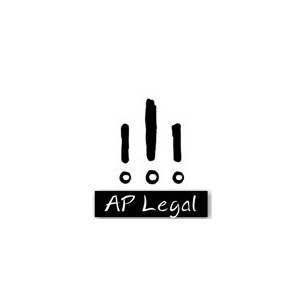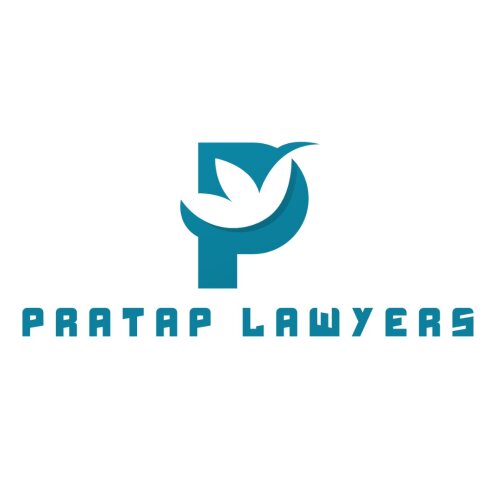Best Sanctions & Export Controls Lawyers in Suva
Share your needs with us, get contacted by law firms.
Free. Takes 2 min.
List of the best lawyers in Suva, Fiji
About Sanctions & Export Controls Law in Suva, Fiji
Sanctions and export controls are crucial components of Fiji’s legal framework, especially in an increasingly globalized world. These laws govern the movement of goods, technologies, and services in and out of Fiji, particularly when international relations, security, and trade policies are involved. Sanctions typically refer to restrictions imposed by national or international bodies on trade and transactions with specified countries, individuals, or entities. Export controls regulate the export, re-export, and transfer of certain goods or technology for reasons of national security, foreign policy, or economic protection. Suva, as Fiji’s capital, is at the heart of implementing and enforcing these critical legal mechanisms.
Why You May Need a Lawyer
There are numerous scenarios where guidance from a legal professional with expertise in sanctions and export controls proves invaluable. If your business is involved in international trade, technology transfer, or shipping dual-use items, you must ensure compliance with Fiji’s laws and any applicable international sanctions. Violations can result in hefty fines, business disruptions, or criminal charges. Individuals may also need legal advice if they are inadvertently involved in transactions with sanctioned entities or if their goods are detained by customs. Consulting a lawyer can help navigate the complex requirements, obtain necessary licenses, respond to government inquiries, or appeal unfavorable decisions.
Local Laws Overview
Fiji’s legal framework on sanctions and export controls derives from several sources. Core legislation includes the Customs Act, which regulates the import and export of goods, and specific regulations or orders issued under the Foreign Affairs or Defence portfolios. Fiji is also bound by United Nations Security Council Resolutions, meaning that any sanctions or embargoes imposed by the UN are incorporated into local law. Furthermore, certain goods such as arms, dual-use technologies, sensitive materials, and items destined for countries under sanctions require additional scrutiny and pre-approval from relevant authorities. Robust compliance and reporting standards are enforced, and non-compliance may lead to seizure of goods, penalties, or prosecution.
Frequently Asked Questions
What is the purpose of sanctions and export controls in Fiji?
Sanctions and export controls help Fiji meet its international obligations, protect national security, prevent criminal activity such as terrorism or money laundering, and promote responsible trade practices.
Who administers sanctions and export controls in Suva, Fiji?
The Ministry of Foreign Affairs, Fiji Revenue and Customs Service, and other government agencies share responsibility for regulating and enforcing sanctions and export controls.
Do Fiji’s laws apply to businesses owned by foreign nationals operating in Suva?
Yes, all businesses operating within Fiji’s jurisdiction must comply with local laws on sanctions and export controls, regardless of the ownership structure.
Are there goods that cannot be exported from Fiji?
Yes, certain goods such as weapons, dual-use items, endangered species, and cultural artifacts may be subject to strict controls or outright bans, especially to some countries.
How are United Nations sanctions implemented in Fiji?
UN sanctions or embargoes are automatically incorporated into local law by regulation, and government agencies ensure compliance by monitoring and enforcing these measures.
What is a dual-use item?
A dual-use item is any product or technology that can have both civilian and military applications. These are tightly regulated under Fiji’s export control regime.
What are the penalties for breaching sanctions or export controls?
Penalties can include seizure of goods, substantial fines, withdrawal of export privileges, or even criminal prosecution depending on the seriousness of the offense.
Can I apply for a license to export controlled goods?
Yes, an export license may be required and can be obtained from relevant authorities such as the Fiji Revenue and Customs Service, subject to a thorough review process.
Is legal advice mandatory before exporting goods?
While not always mandatory, obtaining legal advice is recommended to ensure full compliance and avoid costly mistakes that may arise due to the complex nature of these regulations.
What should I do if my goods are detained at Fiji’s border?
Contact a lawyer experienced in sanctions and export controls immediately. They can help you understand the grounds for detention and guide you through the process of appeal or compliance.
Additional Resources
- Fiji Revenue and Customs Service: For guidance on controlled and prohibited exports and imports - Ministry of Foreign Affairs: For information regarding international sanctions and compliance - Fiji Police Force: For reporting suspected breaches of export controls or sanctions - United Nations Local Office: For updates on current global sanctions applicable in Fiji - Suva Chamber of Commerce: For seminars and training on trade compliance
Next Steps
If you suspect that your business may be affected by sanctions or export controls or if you are involved in an export transaction that raises legal questions, consider seeking legal counsel as soon as possible. Start by gathering all relevant documentation regarding your export or financial transactions. Make a list of your questions or concerns to discuss with the lawyer. Reach out to firms or legal professionals in Suva who specialize in international trade, customs, or regulatory law. Preparing in advance will save time and enable your legal advisor to provide informed, practical guidance tailored to your situation.
Lawzana helps you find the best lawyers and law firms in Suva through a curated and pre-screened list of qualified legal professionals. Our platform offers rankings and detailed profiles of attorneys and law firms, allowing you to compare based on practice areas, including Sanctions & Export Controls, experience, and client feedback.
Each profile includes a description of the firm's areas of practice, client reviews, team members and partners, year of establishment, spoken languages, office locations, contact information, social media presence, and any published articles or resources. Most firms on our platform speak English and are experienced in both local and international legal matters.
Get a quote from top-rated law firms in Suva, Fiji — quickly, securely, and without unnecessary hassle.
Disclaimer:
The information provided on this page is for general informational purposes only and does not constitute legal advice. While we strive to ensure the accuracy and relevance of the content, legal information may change over time, and interpretations of the law can vary. You should always consult with a qualified legal professional for advice specific to your situation.
We disclaim all liability for actions taken or not taken based on the content of this page. If you believe any information is incorrect or outdated, please contact us, and we will review and update it where appropriate.
















